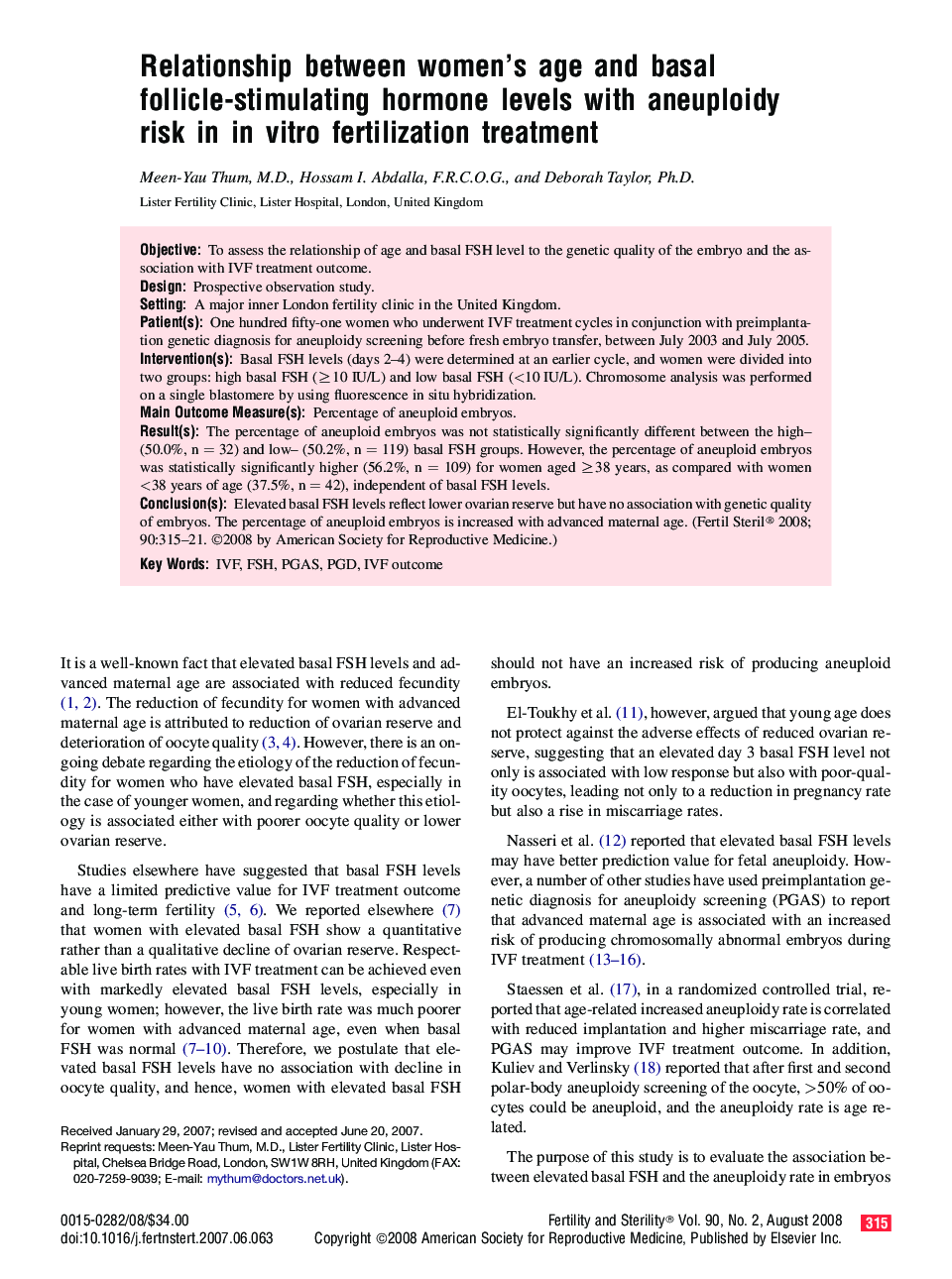| Article ID | Journal | Published Year | Pages | File Type |
|---|---|---|---|---|
| 3934909 | Fertility and Sterility | 2008 | 7 Pages |
ObjectiveTo assess the relationship of age and basal FSH level to the genetic quality of the embryo and the association with IVF treatment outcome.DesignProspective observation study.SettingA major inner London fertility clinic in the United Kingdom.Patient(s)One hundred fifty-one women who underwent IVF treatment cycles in conjunction with preimplantation genetic diagnosis for aneuploidy screening before fresh embryo transfer, between July 2003 and July 2005.Intervention(s)Basal FSH levels (days 2–4) were determined at an earlier cycle, and women were divided into two groups: high basal FSH (≥10 IU/L) and low basal FSH (<10 IU/L). Chromosome analysis was performed on a single blastomere by using fluorescence in situ hybridization.Main Outcome Measure(s)Percentage of aneuploid embryos.Result(s)The percentage of aneuploid embryos was not statistically significantly different between the high– (50.0%, n = 32) and low– (50.2%, n = 119) basal FSH groups. However, the percentage of aneuploid embryos was statistically significantly higher (56.2%, n = 109) for women aged ≥38 years, as compared with women <38 years of age (37.5%, n = 42), independent of basal FSH levels.Conclusion(s)Elevated basal FSH levels reflect lower ovarian reserve but have no association with genetic quality of embryos. The percentage of aneuploid embryos is increased with advanced maternal age.
